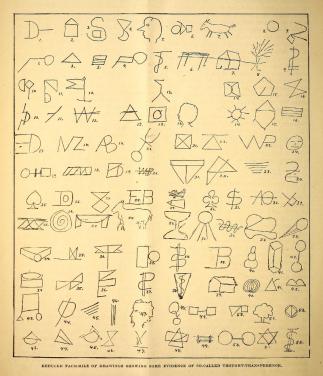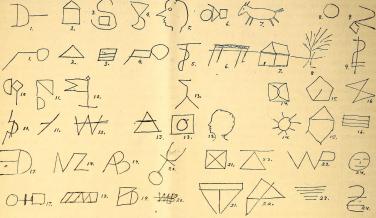Long-term research project to investigate the political and aesthetic aspects of translation through the prism of artistic and cultural practice.


Itzultzen ari gara is a long-term research project initiated by San Sebastian artists and choreographers Blanca Calvo and Ion Munduate (also known as Mugatxoan) with Paris-based curator and writer Virginie Bobin, to investigate the political and aesthetical stakes of translation through the prism of artistic and cultural practices.
The verb Itzuli in Euskaraz has different meanings: this project develops in an intermediary space between two of them. The first evokes a movement returning from a journey or an action, where we can imagine the beginning and the end, but not the intermediate circumstances or displacement that occur. The second attempts to express in a specific language what has previously been written or uttered in another. We are returning / We are translating.
In his 2013 essay “Translating Beyond Europe”, philosopher Boris Buden invites us to get rid of “a naïve, common sense understanding of translation as a being a neutral, purely linguistic tool”, “(…) cognitively objective, politically non-biased, socially neutral, economically productive, culturally stimulating, and morally innocent”. He also defends a conception of language that refutes the fixed, impermeable, monolingual notion of a national or “mother” tongue, to embrace heterolinguality, or an invention that occurs in the interstices between official languages, as a space for political imagination.
Itzultzen ari gara takes this hospitable approach to language and translation as a departure point to explore issues of desire, resistance, knowledge production and the possibility of commoning beyond the official/authorized channels of communication and circulation. The project embraces the figure of the translator as a producer of unexpected meanings and intermediary spaces where to rethink our roles as artists, researchers, cultural producers and citizens. In a context where language and translation have often become tools of control and exclusion (notably affecting the circulation and status of immigrants and asylum seekers throughout Europe and at its borders), Itzultzen ari gara will bring together a variety of tactics, gestures and practices to perform and invent translation (in the sense of both traducción and translacion) processes that facilitate uncharted encounters and relations.
Itzultzen ari gara will develop through several phases, including closed workshop sessions and public programs, as various ways of sharing and expanding the research.
On this occasion we are inviting five participants from various disciplines and backgrounds to confront their own initial research perspectives and experiences: translator and writer Ashkan Sepahvand (Berlin), linguist Myriam Suchet (Paris / Montreal), artists Nicolas Malevé (Brussels), Jon Mikel Euba (Bilbao) and Katarina Zdjelar (Rotterdam); all of them have developed different bodies of work that explore some of the issues raised at the heart of this project.
Four public lectures will extend the territories of translation to reimagine how the various practices it entails can facilitate circulation and encounters rather than restrain and monitor them.
As part of this research will be presented four public lectures that will extend the territory of the translation to reimagine how language and translation can facilitate circulation and encounters rather than restrain and monitor them.
